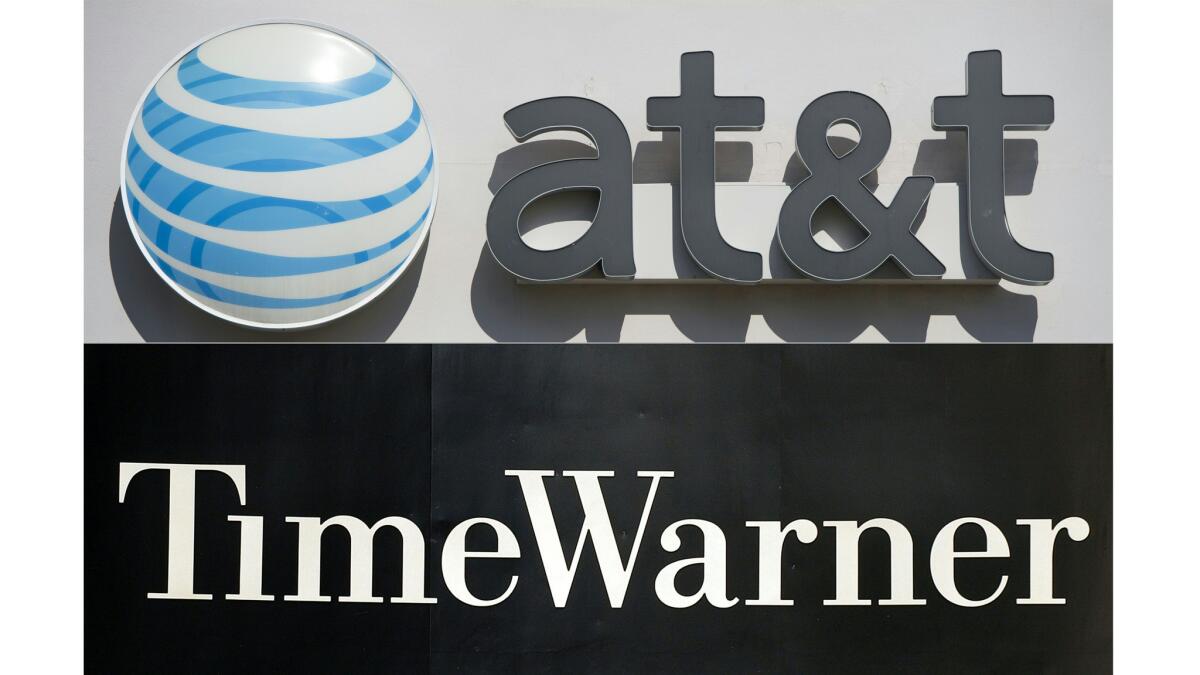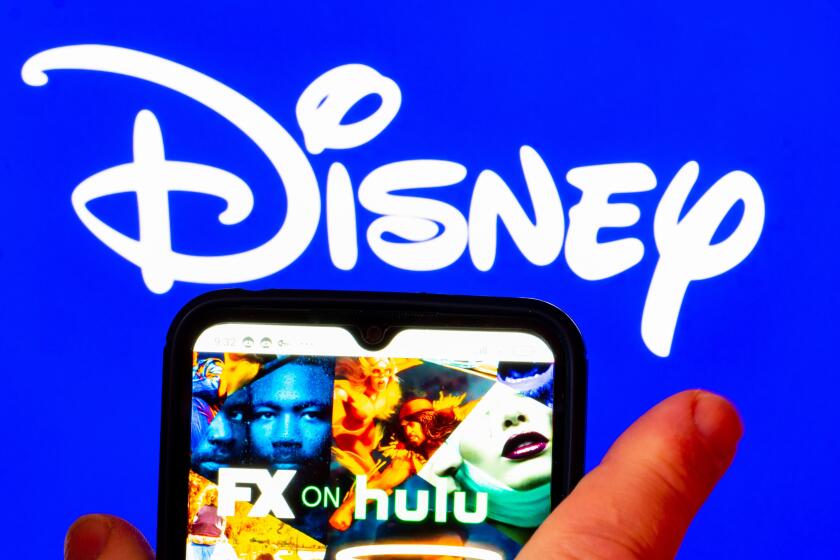Americans could pay an extra $571 million a year for TV if AT&T buys Time Warner, government witness testifies

- Share via
The Department of Justice’s antitrust case against AT&T Inc. reached a crescendo Wednesday as government lawyers asked an expert economist to explain how the telecom giant’s proposed $85-billion merger with Time Warner Inc. would lead to higher cable bills for consumers.
By 2021, consumers could be paying an extra $571 million a year in TV fees — the result of AT&T-Time Warner charging cable companies higher prices to carry channels such as CNN, TBS and TNT, said Carl Shapiro, a professor at UC Berkeley who analyzed the deal on the government’s behalf.
“I’ve concluded the merger will harm consumers,” Shapiro told the court. “The harm is significant.”
Shapiro’s testimony serves as the linchpin of the government’s case, because antitrust suits frequently turn on demonstrated impacts to consumer prices. Although economic testimony can be abstract and complex, Shapiro took pains to walk U.S. District Judge Richard Leon through every step of his analysis.
The effort earned Shapiro an early rapport with Leon; as the two traded jokes, Shapiro deftly explained key business concepts that the Justice Department had trouble getting across using previous witnesses whose arguments Leon had dismissed as merely opinion.
For example, Shapiro conveyed the significance of possible changes in bargaining leverage between AT&T and other cable companies if the merger is approved.
“Why will they have more leverage? What’s new is that AT&T and DirecTV will benefit if Charter doesn’t have Turner’s content,” said Shapiro, referring to popular programming owned by Time Warner. “Charter is going to be a weaker competitor. You go through the logic, this is the fundamental.”
Anticipating Leon’s questions, conceding the limits of his abilities and telegraphing what he would argue before laying out his research, Shapiro made three key points to a packed courtroom.
First, he said, AT&T risked raising the price of content to other cable companies and driving up their costs.
Second, in 1,100 TV markets nationwide, AT&T could benefit by drawing customers away from rival TV providers that decided not to carry Time Warner content because of pricing concerns, he said. AT&T could also make more money by using its control over Time Warner content to retain customers and discourage them from switching to cable companies that didn’t carry those channels. Those two dynamics, Shapiro said, could cause rival cable companies to lose between 9% and 14% of their subscribers over the long term.
Third, Shapiro argued that AT&T plausibly could coordinate with Comcast to restrict access to much-needed Time Warner and NBC content in ways that could hurt the emerging crop of online cable alternatives such as Dish Network’s Sling TV or Sony’s PlayStation Vue. This type of coordination wouldn’t need to be explicit or even illegal to have a negative effect on consumer choices, he said.
But Leon and Shapiro diverged on a key issue: the post-merger relationship between AT&T and Time Warner.
Leon appeared unconvinced that AT&T and Time Warner would each act to maximize the profits of the combined company. When Shapiro referred to AT&T employees negotiating with other cable companies over the price of Time Warner’s content, Leon interrupted to clarify that it would be a Time Warner employee doing the negotiation.
Technically that would be correct, Shapiro later said, but it would be a distinction without a difference.
“I think they’ll operate in the joint interest of AT&T,” said Shapiro, calling it a “core” assumption in the field of economics. “The merged company will operate to maximize its joint profits.”
More to Read
Inside the business of entertainment
The Wide Shot brings you news, analysis and insights on everything from streaming wars to production — and what it all means for the future.
You may occasionally receive promotional content from the Los Angeles Times.










